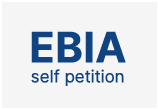Extraordinary Ability (EB1A) and USCIS Criteria
Among the five employment-based green card categories (EB1-EB5), the first-preference category (EB1) is available for those with extraordinary ability, outstanding professors or researchers, or multinational executives or managers. Each of these employment classifications has unique requirements.
For postdoctoral researchers and PhDs, the EB1 category offers two relevant classifications: EB1A (extraordinary ability) and EB1-OR (outstanding researcher). The EB1-OR classification requires employer sponsorship and a permanent job or job offer from a prospective employer. This classification is commonly used by researchers in academia where universities are willing to sponsor the application process. It can also apply to researchers in industry, though many employers often require a green card before hiring.
EB1A: Extraordinary Ability Self-Petition
The EB1A classification (also known as E11) allows individuals with extraordinary ability to self-petition for a green card. This means you do not need employer sponsorship, a permanent job offer, or a labor certification process. You are not required to be in the USA at the time of application. The statutory requirements for EB1A classification are to meet three of the ten USCIS EB1A criteria listed below, or demonstrate a one-time significant achievement such as a Pulitzer Prize or Nobel Prize.
Of course, winning awards like the Nobel Prize, Fields Medal, or Abel Prize would qualify an applicant without the need for an elaborate petition letter. However, most postdoctoral applicants will need to demonstrate evidence that satisfies at least 3 of the 10 criteria. While these regulatory criteria are required, they are not sufficient on their own—USCIS considers the overall merit of the case based on all evidence submitted to determine whether the applicant demonstrates “extraordinary ability.”
Two-Part Evaluation for EB1A Applications
In December 2010, USCIS issued guidelines for immigration service officers on how to determine extraordinary ability. The memo instructs USCIS adjudicators to use a two-part approach for evaluating evidence, as referenced in the Kazarian appeals case. This is commonly called the “Two-Part Evaluation in EB1A.” Under this rule, an applicant must meet three of the ten EB1A regulatory requirements, and then their overall merits are judged based on the following two criteria:
- The petitioner is among the small percentage of individuals who have risen to the very top of their field of endeavor.
- The petitioner has achieved sustained national or international acclaim, and their achievements have been recognized in their field of expertise.
Some postdocs and researchers may have sufficient evidence to meet the EB1A requirements. But how do you determine if you are one of them? We suggest you make a detailed list of your achievements and assess how your work has impacted others (e.g., citations, patents, or inventions). This exercise will help you determine if you have the necessary evidence to satisfy the two-part criteria.
To judge your chances in the EB1A category, you can use our EB1A Evaluation Tool or contact us for more information. You can also explore approved examples and the green card application process, and look at example petitions in our DIY packets.
USCIS Criteria for Extraordinary Ability (EB1A)
A petition for an individual of extraordinary ability must include evidence demonstrating that the individual has achieved sustained national or international acclaim and that their achievements have been recognized in their field of expertise. Such evidence must include proof of a one-time achievement (i.e., a major, internationally recognized award) or at least three of the following criteria:
- Documentation of nationally or internationally recognized prizes or awards for excellence in the field of endeavor.
- Documentation of membership in associations that require outstanding achievements of their members, as judged by recognized national or international experts in their field.
- Published material about the individual in professional or major trade publications or other major media, relating to their work in the field. This should include the title, date, and author of the material.
- Evidence of participation as a judge of the work of others, either individually or as part of a panel, in the same or an allied field of specialization.
- Evidence of original scientific, scholarly, artistic, athletic, or business-related contributions of major significance in the field.
- Evidence of authorship of scholarly articles in professional or major trade publications or other major media.
- Evidence of display of work at artistic exhibitions or showcases.
- Evidence that the individual has performed in a leading or critical role for organizations or establishments with a distinguished reputation.
- Evidence that the individual has commanded a high salary or other significantly high remuneration for services in relation to others in their field.
- Evidence of commercial successes in the performing arts, as shown by box office receipts or record sales.
Note: If the above standards do not readily apply to the beneficiary’s occupation, comparable evidence may be submitted to establish eligibility.
USCIS Policy Guidance on EB1A Criteria
In 2023, USCIS released a detailed explanation of each of the ten criteria and what constitutes acceptable evidence. This guidance is useful for anyone planning to self-petition under the EB1A category. You can visit the USCIS guidance page here.
Our DIY packets break down the complex EB1A application process into simple, actionable steps for collecting evidence, assessing your chances of success, and preparing an effective application. These packets include examples of successful petitions, making the green card application process easier.
Other Resources
For more information on EB1A USCIS criteria, check out the following resources:
- EB1A: Everything You Need to Know
- Employment-Based Immigration: First Preference EB-1
- Understanding the EB-1 Requirements for Extraordinary Ability
- PM-602-005.1: December 2010 Policy Memorandum on Aliens of Extraordinary Ability
Disclaimer: The content on this website is intended for informational purposes only and is not legal advice. While many of our applicants successfully obtain their I-140 approvals, the information here should not be considered a guarantee of your green card application outcome.



